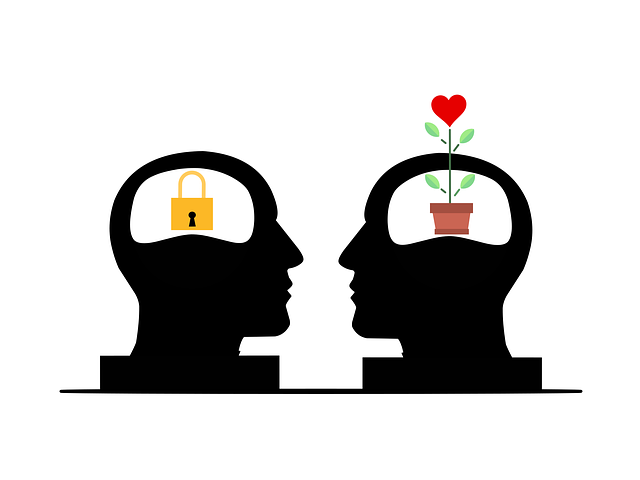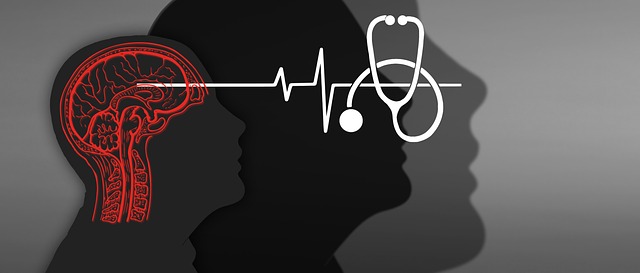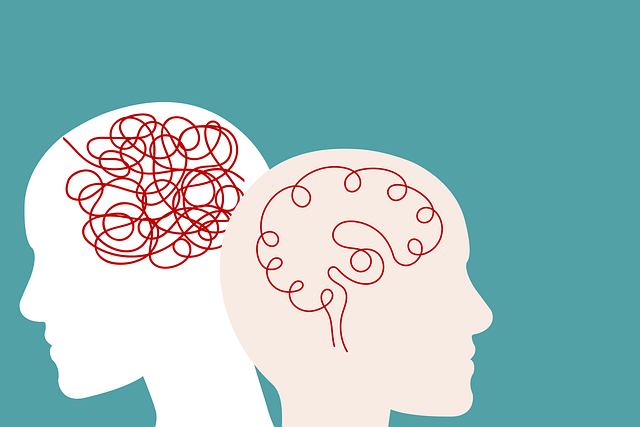Anxiety linked to unresolved grief can significantly impact daily life. Therapy for Grief Counseling provides a safe space to process emotions and navigate grief stages, offering tailored stress management techniques to reduce anxiety symptoms and challenge mental illness stigma. Specialized workshops support those dealing with both grief and anxiety. Combining self-awareness exercises, mindfulness meditation, cognitive reframing, and professional therapy strengthens coping skills, enhancing emotional control and resilience over time.
Anxiety, a common companion to grief, can profoundly impact our daily lives. This article explores effective strategies for managing anxiety, focusing on therapeutic approaches and practical coping mechanisms. We delve into the intricate link between anxiety and grief, offering insights from grief counseling perspectives. Discover evidence-based techniques tailored to enhance resilience and promote emotional well-being. By understanding and addressing anxiety, individuals can navigate the healing process with greater ease and reclaim their sense of calm.
- Understanding Anxiety and Its Connection to Grief
- Therapeutic Approaches for Effective Anxiety Management
- Practical Strategies for Daily Coping and Resilience
Understanding Anxiety and Its Connection to Grief

Anxiety is a natural response to stress, but when it becomes overwhelming and persistent, it can significantly impact daily life. Often, anxiety disorders are linked to underlying grief, especially after traumatic or significant loss. Grief counseling, a form of therapy, plays a crucial role in understanding and managing these complex emotions. It provides a safe space for individuals to process their feelings, allowing them to work through the stages of grief and develop healthy coping mechanisms.
Through therapy sessions, clients can explore the emotional healing processes associated with loss and learn effective stress management techniques tailored to their needs. This personalized approach, coupled with support from a qualified counselor, helps individuals reduce the symptoms of anxiety and even combat mental illness stigma associated with seeking help. Many organizations now offer specialized workshops focusing on grief and anxiety, providing valuable resources for those navigating these challenges.
Therapeutic Approaches for Effective Anxiety Management

Anxiety management techniques often include therapeutic approaches that are tailored to address the root causes of an individual’s anxiety. One effective method is therapy for grief counseling, which helps individuals process and overcome feelings of loss, sadness, or trauma that can contribute to anxiety disorders. Through mental health awareness and support from trained professionals, individuals can learn coping strategies and develop a better understanding of their emotional responses.
Additionally, stress management workshops organized by mental health organizations offer practical tools for mitigating anxiety symptoms. These workshops often incorporate techniques such as mindfulness, deep breathing exercises, and cognitive-behavioral therapy (CBT). By integrating self-care practices into daily routines, individuals can better regulate their stress levels and enhance overall well-being, thereby reducing the impact of anxiety on their lives.
Practical Strategies for Daily Coping and Resilience

In navigating daily life with anxiety, adopting practical strategies for coping and building resilience is a powerful tool. One effective approach is to incorporate self-awareness exercises into one’s routine. Techniques such as mindfulness meditation help individuals stay grounded in the present moment, reducing the impact of anxious thoughts. Regular practice enhances an individual’s ability to recognize and manage their emotional responses, fostering a sense of control.
Additionally, cultivating positive thinking plays a significant role in anxiety management. Cognitive reframing techniques encourage individuals to challenge negative thought patterns and replace them with more realistic, positive alternatives. This shift in perspective can lessen the intensity of anxious feelings. Combining these strategies with grief counseling or therapy sessions empowers individuals to develop effective coping skills, bolstering their emotional resilience over time.
Anxiety management techniques, especially those tailored to individuals navigating grief, offer powerful tools for enhancing well-being. By combining therapeutic approaches with practical strategies, one can cultivate resilience and effectively cope with anxiety. Integrating these practices into daily life not only facilitates healing but also enables a deeper understanding of oneself, fostering a more balanced and peaceful state of mind. For those seeking support, professional therapy, including grief counseling, plays a pivotal role in managing anxiety and promoting lasting emotional well-being.














